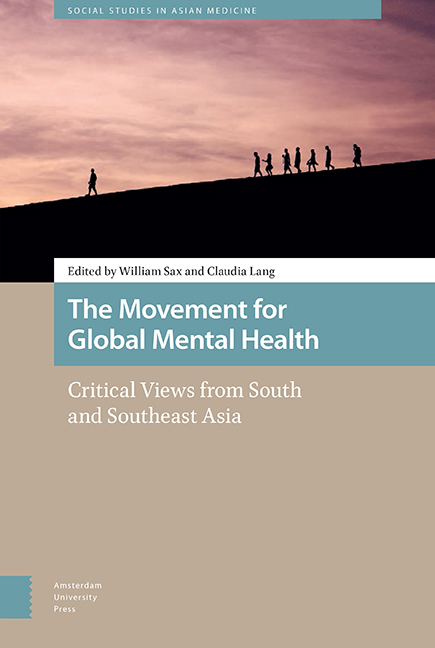1 - Global Mental Health: Views from South Asia and Beyond
Published online by Cambridge University Press: 27 May 2021
Summary
Abstract
Although the contributors to this volume are sympathetic to many of the goals of the Movement for Global Mental Health, we are also of the view that its agenda at the time of publication is based upon a number of problematic assumptions, that it may serve unacknowledged interests, and that in some respects it might even have harmful consequences. In the introduction we focus on the problematic assumptions that “mental disorders” can clearly be identified; that they are primarily of biological origin; that the world is currently facing an “epidemic” of mental disorders; that the most appropriate treatments for them normally involve psychopharmaceutical drugs; and that local or indigenous therapies are of little interest or importance. We also question the value of “scaling up” mental health services, as advocated by the Movement for Global Mental Health, and conclude by summarising the structure of the book, with brief comments on the various essays.
Keywords: Movement for Global Mental Health, treatment gap, treatment Difference
Global mental health is something that everyone supports: Who does not want everyone on the planet to be mentally well? But what does it mean to be mentally healthy, or mentally ill? What concepts of “mind”, “health”, and “illness” are applied, by whom, and with what authority? What visions of global mental health have been articulated, and by whom? Must one choose between them, and if so, how? In recent years, one particular vision of global mental health has come to dominate the field, and its answers to these questions have become increasingly influential. The Movement for Global Mental Health (henceforth MGMH) is a worldwide assemblage of psychiatrists, psychologists, government agencies, medical doctors, public health professionals, health policy makers, private foundations, medical journals, and others “committed to collective actions that aim to close the treatment gap for people living with mental disorders worldwide, based on two fundamental principles: evidence on effective treatments and the human rights of people with mental disorders” (Patel et al. 2011). It rose to prominence in 2008 following a series of articles in one of the world's leading medical journals that culminated in a call “to scale up the coverage of services for mental disorders in all countries, but especially in low-income and middle-income countries” (Chisholm et al. 2007, 1241; for the genealogies of global mental health cf. Ecks 2016 and this volume; Lovell et al. 2019).
- Type
- Chapter
- Information
- The Movement for Global Mental HealthCritical Views from South and Southeast Asia, pp. 7 - 38Publisher: Amsterdam University PressPrint publication year: 2021



